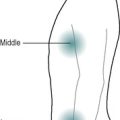Thinking, sleeping and consciousness
The hun is said to be rooted within the Liver Blood. When the Liver Blood is not healthy, people can have a feeling of floating off when dropping off to sleep. They can also sleepwalk, have out-of-body experiences, experience ‘astral travel’ involuntarily and dream so that it is difficult to make a distinction between dreams and reality. The hun is easily upset by alcohol and drugs. When the Liver is relatively balanced, the hun remains rooted and people can distinguish reality from dreams. When the Liver is imbalanced, the symptoms arising can range from mild absent-mindedness to gross distortion of perceptions.
A Wood CF aged 32 mentioned in passing that he would wake up at night and find other people sitting in his bedroom. The first few times he was confused but he ended up getting to know them and having long conversations. He said he more or less knew that they were not ‘real’ people, but in their presence they responded as if they were visitors. For example, they had their own views, would express them and could argue their case. Over time, he had simply accepted that he could wake up and they would be there. His Liver Blood was deficient, allowing his hun to separate from his body.
Thinking, strategising with insight and wisdom
This function overlaps with what was said earlier about the Liver Official and planning. The ‘general’ not only functions on an everyday level by developing plans and working out how to achieve them, but also on a more spirit or psychic level. ‘Insight’ suggests that people’s thinking is quick and the steps in their reasoning processes are enacted quickly. ‘Wisdom’ suggests that people’s experience helps them to understand and have the ability to access and make sense of the patterns of events that occur in their lives. Like a football coach who has studied his players, the opposing teams and the wide variety of patterns that football presents, the hun can respond effectively to the key issues of life.
These issues are of varying degrees of importance and arise with varying degrees of frequency. They might be issues to do with whom a person should be friends, whether to choose a mate and which mate to choose, whether to follow a teacher, what subjects to study, whether to take a job, where to live and so on. People with a well-rooted hun can make good decisions and plans, using their insight and wisdom. They can also accurately evaluate what the world might provide for them. Even more important, they match the choices they make to their long-term needs and capabilities. The challenge is for people to find paths that are appropriate to themselves and that allow them to fulfil their potential. If people fail to formulate such plans, frustration and disappointment are the likely consequences.
In a book edited by Thomas Cleary, subtitled ‘A Course in Resourceful Thinking’, there are many quotes from Chinese classics that are then commented upon by the editor. One of these says: ‘Impulsive actions resulting in failure are faulty’. The commentary reminds us of the function of the hun.
Successful endeavours are the result of strategic planning, adequate planning and appropriate timing. An arrow that is loosed before the bow is fully drawn will not likely reach the target; an arrow that is loosed before the aim is made certain will surely fly wide of the mark. When things go wrong, it is easy to blame other people or external conditions; but when failure is due to one’s own impulsiveness, the responsibility belongs to oneself alone.
(Cleary, 1996, p. 86)
We can assess the patient’s
hun with a simple question: ‘To what degree is a person growing and developing towards his or her ultimate purpose or destiny?’ This is often a difficult question to answer but it brings together many aspects or levels of the Liver. As the old joke goes ‘Is life worth living?’ ‘It all depends on the Liver’.
1








